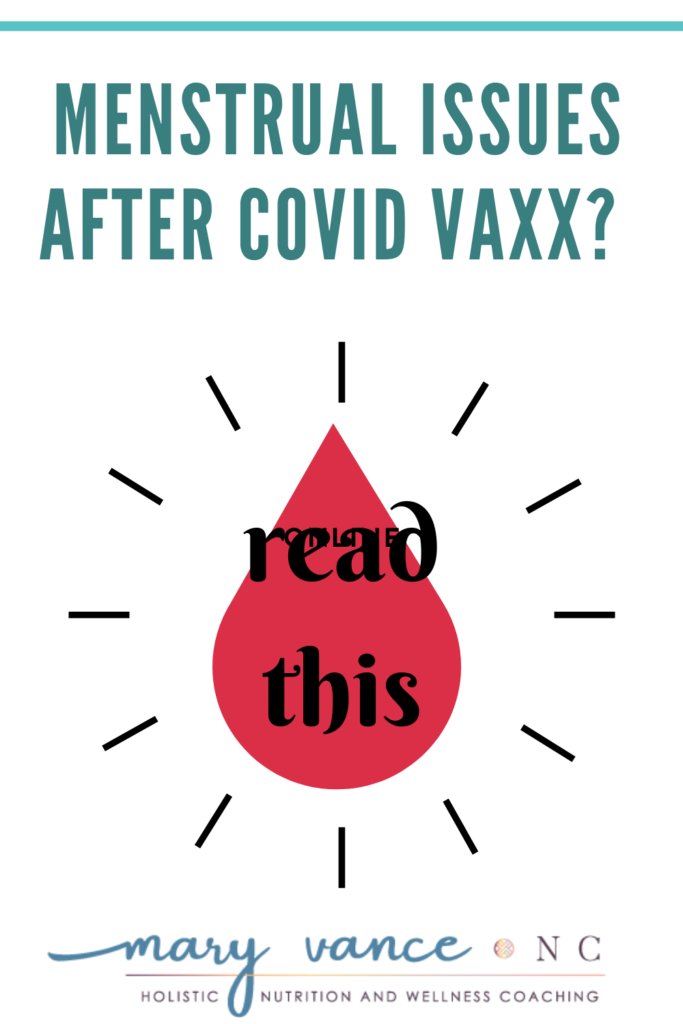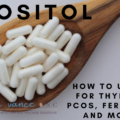As of press time, June 2021, nearly 500 million people or about 6% in the world are fully vaccinated against SARS-CoV-2, Covid-19. Nearly 50% of the US population has received one dose. or more. San Francisco is the first city to achieve herd immunity at 80% of the population vaccinated.
Vaccinations against Covid-19 were rapidly developed and issued emergency use authorization. Still, they were tested thoroughly, and, like all vaccines, go through a 3-phase process before receiving FDA authorization. Roughly 44,000 people participated in the vaccine trials.
Researchers made sure that the trials included adults of diverse backgrounds, races, ethnicities, and geographic areas because people respond differently to vaccines based on factors like age, gender, and health conditions. That’s why when, after a few months of the vaccines being unleashed on the general public, I was particularly alarmed hearing first from colleagues and then from my own clients that women were experiencing in some cases severe menstrual irregularities after getting the covid vaccine. I found this disconcerting because it hadn’t been widely publicized nor listed among the usual vaccine side effects. As I began to dig a little deeper, I uncovered more information about the covid vaccine and resulting menstrual irregularities and why this was happening.
Covid-19 Vaccines
The three vaccine options we in the U.S. have currently include Moderna and Pfizer, both mRNA technology, and J&J’s one dose shot that uses a viral vector to deliver genetic material coding. We were made aware of the vaccine side effects including the following:
- pain, redness, and swelling at injection site
- fatigue
- muscle pain
- chills
- fever
- nausea
- headache
These side effects may be much worse after the second dose. And according to a PaleoMom podcast, side effects from the vaxx may be predictive of how sick you would have been with Covid. (source, podcast # 455). Completely anecdotally, I began hearing the side effects from Moderna were much worse than Pfizer, so I did a little digging and discovered the Moderna dose is about three times bigger than the Pfizer dose! Yet they both have similar effectiveness at about 95% efficacy (edit, months later: we keep getting conflicting info on which is more efficacious, but both prevent serious illness and death in most cases).
The J&J vaxx was paused after it began triggering a rare but serious side effect — the development of diffuse blood clots, even though the few individuals who developed the condition had low platelet levels. While this is a sign that our vaccine reporting system (VAERS) is working and action was taken right away, three people died and 15 were diagnosed with the issue. The vaccine has since been cleared for use again.
Recently, the CDC has been investigating higher than usual incidences of myocarditis and pericarditis in adolescents who have received the vaccine, mostly in young men ages 16-24.
Covid Vaccine & Menstrual Irregularities
The general population began receiving vaccines around December, 2020, and I began hearing women report menstrual issues after getting their shot around Spring 2021. I heard the following:
- general menstrual irregularities
- long, heavy periods
- shortened cycles
- lighter cycles or absent periods
- delayed ovulation
This should be temporary, and there are a few reasons for this menstrual side effect.
First off, the uterine lining (which is shed during menstruation) contains immune cells that protect the uterus. So anything affecting the immune system may disrupt cycles in some women. And women have stronger and more robust immune responses to vaccines than men do. Men have fared much worse when it comes to severity of Covid infections, and hormones are a key factor in that. Women have more complex immune systems than men. Makes sense since they grow babies, and female immune systems need to clearly distinguish between self and other.
In a small study of women diagnosed with Covid, over 50% reported some type of menstrual change, like disruptions in length, lighter, heavier, and longer. It’s possible that the vaccine has a similar effect, but we don’t know yet.
So, I conducted a small poll among my instagram followers about menstrual issues post Covid vaxx. Out of more than 100 women who participated, almost 30% reported cycle changes. And I got tons of messages that ran the gamut from long heavy bleeding to absent periods.
This is disconcerting for sure, but it should be a temporary inflammatory immune response. Stress can be a huge factor here too— many women have reported cycle changes since the pandemic started. What’s even worse in my opinion is that after the clinical trials and before the vaxx was unleashed on the public, we were made aware of possible side effects, BUT women were NOT made aware of THIS huge side effect. And that’s because women’s symptoms are historically neglected or not asked about in medical studies. It’s a symptom of an ongoing problem, that women’s symptoms are still being discounted in the medical sphere. So, understandably, many women are alarmed.
Remember that anything that is a stress can disrupt your cycle. In this case, it seems that the immune response mounting from the Covid vaccination causes cortisol (your main stress hormone) to rise, and cortisol fluctuations affect your endocrine system, notably your sex hormones and thyroid. This is a normal response to any stress or even an infection. This stress can cause wonky cycles or delayed ovulation. This is a normal response, because your body knows that when it is sick or stressed, it is not a good time to reproduce. This response should be temporary.
Menstrual irregularities are more likely to happen to you if you already have cortisol dysregulation (you are chronically stressed, not sleeping enough, and/or have a poor diet) or if you already had irregular cycles. It’s more likely to persist in this case also.
What To Do About Covid Vaccine Menstrual Issues
Your cycle should regulate on its own. However, if you are extra stressed (who isn’t), try adaptogenic herbs to help balance your HPA axis (your central stress response system). Here is my article on how to use adaptogens. They are fantastic for stress relief and nervous system regulation. For heavy flow, try Vitanica ‘slow flow.’ You may also need to supplement with B vitamins and extra iron if you are having heavy periods.
Your body is beautifully designed to handle stress, but not unrelenting chronic stress. It sees chronic stress as a threat to survival and that it’s not a safe time to reproduce, and that’s why delayed ovulation and resulting menstrual issues happen. This does NOT affect fertility long term (unless you remain chronically stressed). You can absolutely balance your hormones and stress response via diet, herbs, sleep (most important!), managing blood sugar etc.
You’ll note that still–as of the time I published this post–vaccine side effects still do not include menstrual irregularities. I believe there are studies underway as awareness is increasing about this issue.
Pin it

Mary Vance is a Certified Nutrition Consultant and author specializing in digestive health. She combines a science-based approach with natural therapies to rebalance the body. In addition to her 1:1 coaching, she offers courses to help you heal your gut and improve your health. Mary lives in San Francisco and Lake Tahoe in Northern California. Read more about her coaching practice here and her background here.










Curious about your thoughts or findings about the affects on menopausal women. Thanks!
Hi Irene, if you’re in menopause, likely cycles are getting wonky (coming more frequently, heavier bleeding, skipping months), so it would be hard to tell if that’s caused by menopause or the vaccine or having had covid.